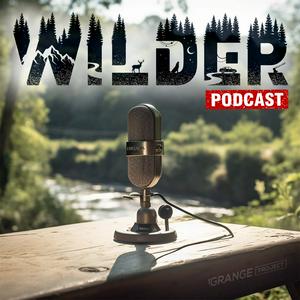In episode 46 of The Wilder Podcast, hosts Chloe and Tom explore how wild places heal people and ecosystems. Their guest is Jo Roberts, CEO of the Wilderness Foundation UK. Jo shares how her childhood in South Africa fostered a deep respect for wilderness, how trauma influenced her career path, and why she believes access to nature should be a basic public health right. The conversation covers the Grange Project’s latest updates (volunteers, community‑days and new Berkshire pigs), the difference between parks and true wilderness, and the Wilderness Foundation’s programmes for survivors of domestic abuse, young people experiencing mental‑health challenges and at‑risk youth. Together they discuss why being outdoors with others, facing manageable challenges and reconnecting with non‑human nature can transform mental and emotional health.
Guest:
Jo Roberts – CEO, Wilderness Foundation UK
Jo has been Chief Executive of the Wilderness Foundation since 2004 and previously worked as Projects Director and Project Coordinatorwildernessfoundation.org.uk. A South African by birth, Jo was shaped by wild places across Africa and studied social anthropology during apartheid. She moved to the UK in 1984 and later merged her global network of wilderness practitioners into programmes that use nature to promote wellbeing and behavioural changewildernessfoundation.org.uk. Jo is a master NLP practitioner and psychotherapeutic counsellor who leads wilderness therapy programmes, with research interests in how immersion in nature affects mental healthwildernessfoundation.org.uk. She also serves on the Essex Climate Action Commission and champions the idea that “we help nature and nature helps us”wildernessfoundation.org.uk.
Timestamps & Topics:
[00:00] Introductions & Grange Project update
[08:00] Jo Roberts’ background
[16:00] What counts as wilderness?
[28:00] Why wilderness heals
[36:00] Programmes & therapeutic work
[45:00] Access to nature as a public health right
[55:00] Reflections & takeaways:
Key Takeaways:
Wild places are medicine. Research on the Wilderness Foundation’s TurnAround programme shows that spending time in wilderness and receiving long‑term support improves emotional wellbeing for most participants and helps them into education, training or worksmileymovement.org.
Nature‑based therapy blends challenge and care. Programmes like Blossom and Brave Futures combine bushcraft, outdoor cooking and art therapy with trauma‑informed counselling


